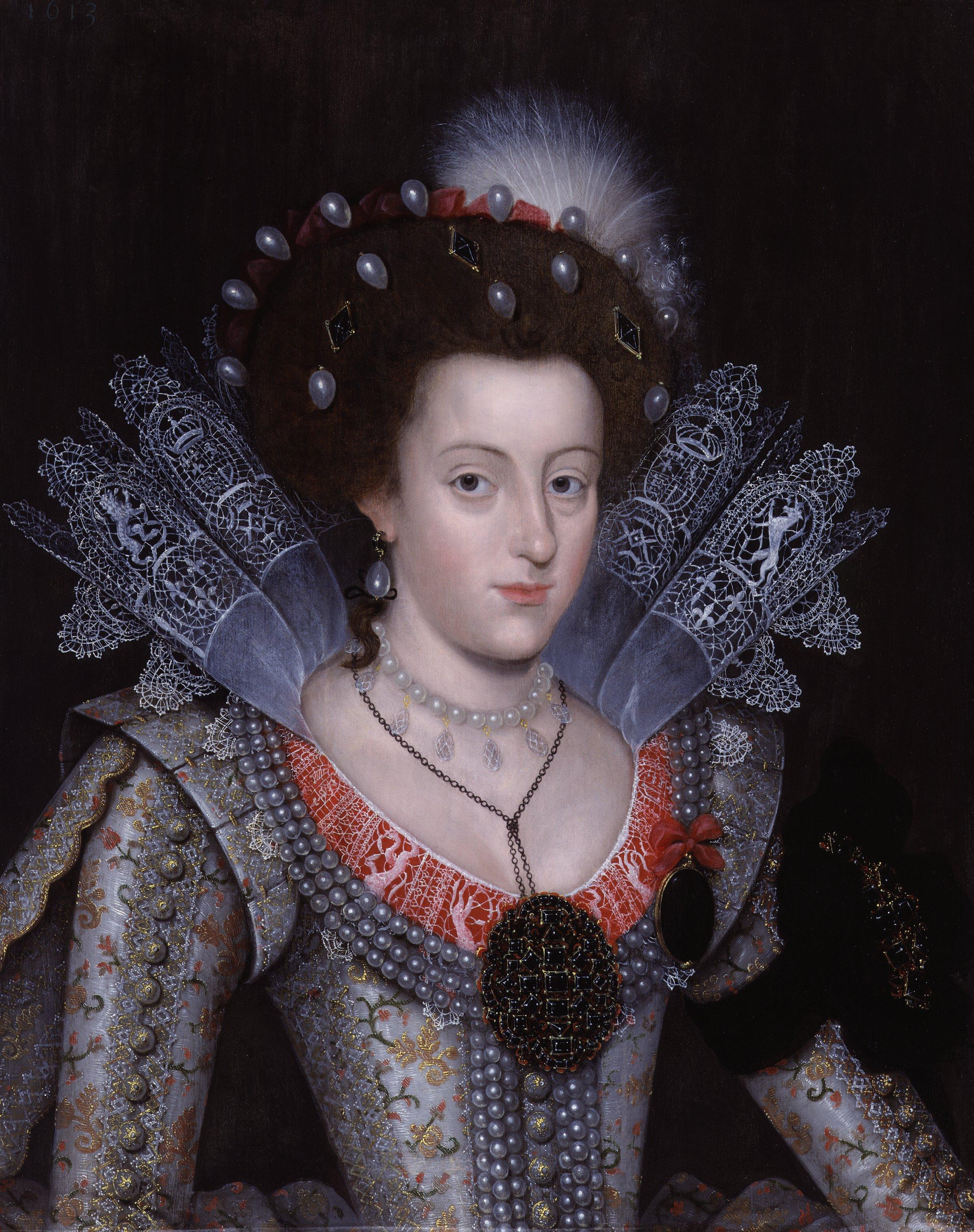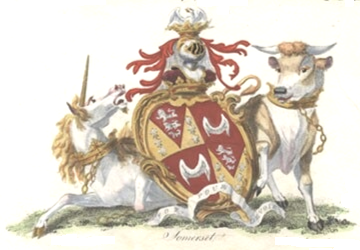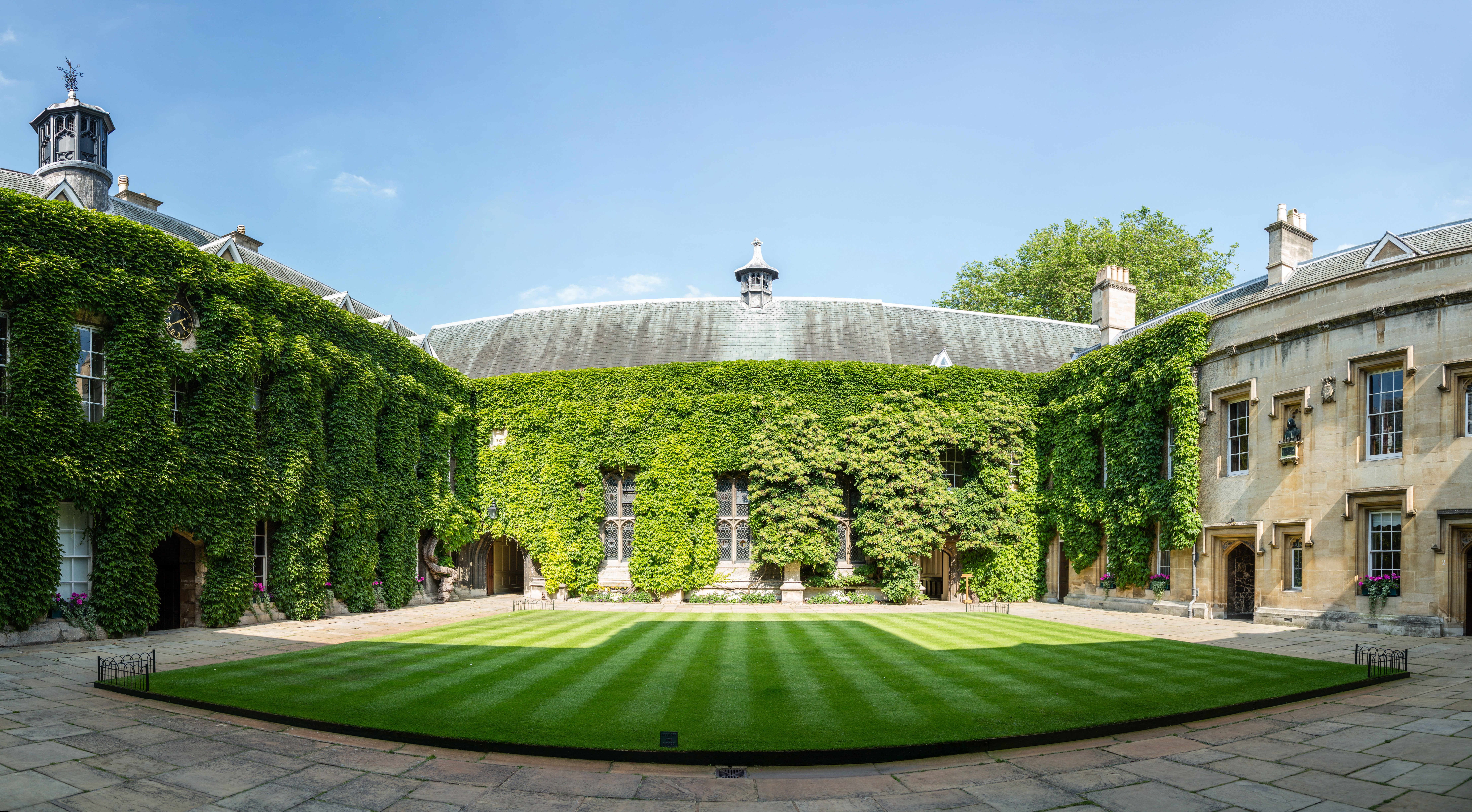|
Ralph Hopton, Baron Hopton
Ralph Hopton, 1st Baron Hopton, (159628 September 1652), was an English politician, soldier and landowner. During the 1642 to 1646 First English Civil War, he served as Royalist commander in the West Country, and was made Baron Hopton of Stratton in 1643. Along with his close friend Sir Edward Hyde (later the Earl of Clarendon), he was made advisor to the future Charles II, when he was appointed to rule the West in early 1644. He commanded the last significant Royalist field army, and followed Charles into exile after surrendering in March 1646. A devout supporter of the Church of England, his personal opposition to Catholicism and Presbyterianism meant he took no further part in the 1638 to 1651 Wars of the Three Kingdoms. He died in Bruges in 1652. In his stated account of the war, Clarendon described him as 'a man of great honour, integrity, and piety, of great courage and industry, and an excellent officer for any command but the supreme, to which he was not equal'. Li ... [...More Info...] [...Related Items...] OR: [Wikipedia] [Google] [Baidu] |
Witham Friary
Witham Friary is a small English village and civil parish located between the towns of Frome and Bruton in the county of Somerset. It is in the Cranborne Chase and West Wiltshire Downs Area of Outstanding Natural Beauty and the ancient Forest of Selwood. History The parish was part of the hundred of Frome. The village takes its name from a technically confused reference (a friary is generally a house of Franciscans and in any case not of Carthusians) to the Witham Charterhouse, a Carthusian Priory founded in 1182 by Henry II, which had peripheral settlements including one at Charterhouse and possibly another at Green Ore. It is reputed to be the first Carthusian house in England. One of only nine Carthusian Houses in the country, the priory did not survive the Dissolution of the Monasteries. At the Dissolution it was worth £227; the equivalent of £52,000 today (2006). Excavations in 1921 revealed buttressed wall foundations and building rubble including glazed roof and f ... [...More Info...] [...Related Items...] OR: [Wikipedia] [Google] [Baidu] |
Battle Of Braddock Down
The Battle of Braddock Down was a battle of the south-western campaign of the First English Civil War. It was fought on open ground in Cornwall, on 19 January 1643. An apparently easy victory for the Royalists under Sir Ralph Hopton secured Cornwall for King Charles and confirmed Hopton's reputation as a commander. Hopton also gained respect for the mercy shown to his foe, of whom 1,500 were captured during and after the battle. The precise location of the battlefield is a matter of dispute, though English Heritage believe it to be within parkland at Boconnoc. Prelude Hopton had been attempting to march into Devon from Cornwall but was prevented from doing so by the Parliamentarian force at Plymouth under the Earl of Stamford and William Ruthven. He retreated across Bodmin Moor and on 17 January was able to replenish his food and ammunition stores from three Parliamentarian ships that sought refuge from a storm at Falmouth and were captured. Sir Ralph Hopton's Royalist forc ... [...More Info...] [...Related Items...] OR: [Wikipedia] [Google] [Baidu] |
First English Civil War
The First English Civil War took place in England and Wales from 1642 to 1646, and forms part of the 1639 to 1653 Wars of the Three Kingdoms. They include the Bishops' Wars, the Irish Confederate Wars, the Second English Civil War, the Anglo-Scottish war (1650–1652) and the 1649 to 1653 Cromwellian conquest of Ireland. Historians estimate that between 15% to 20% of all adult males in England and Wales served in the military between 1639 to 1653, while around 4% of the total population died from war-related causes. This compares to a figure of 2.23% for World War I, which illustrates the impact of the conflict on society in general and the bitterness it engendered. Conflict over the role of Parliament and religious practice dated from the accession of James VI and I in 1603. These tensions culminated in the imposition of Personal Rule in 1629 by his son, Charles I, who finally recalled Parliament in April and November 1640. He did so hoping to obtain funding that would en ... [...More Info...] [...Related Items...] OR: [Wikipedia] [Google] [Baidu] |
Soldier
A soldier is a person who is a member of an army. A soldier can be a conscripted or volunteer enlisted person, a non-commissioned officer, or an officer. Etymology The word ''soldier'' derives from the Middle English word , from Old French or , meaning mercenary, from , meaning shilling's worth or wage, from or , shilling. The word is also related to the Medieval Latin , meaning soldier (literally, "one having pay"). These words ultimately derive from the Late Latin word , referring to an Ancient Roman coin used in the Byzantine Empire. Occupational designations In most armies use of the word "soldier" has taken on a more general meaning due to the increasing specialization of military occupations that require different areas of knowledge and skill-sets. As a result, "soldiers" are referred to by names or ranks which reflect an individual's military occupation specialty arm, service, or branch of military employment, their type of unit, or operational employment or technic ... [...More Info...] [...Related Items...] OR: [Wikipedia] [Google] [Baidu] |
Politician
A politician is a person active in party politics, or a person holding or seeking an elected office in government. Politicians propose, support, reject and create laws that govern the land and by an extension of its people. Broadly speaking, a politician can be anyone who seeks to achieve political power in a government. Identity Politicians are people who are politically active, especially in party politics. Political positions range from local governments to state governments to federal governments to international governments. All ''government leaders'' are considered politicians. Media and rhetoric Politicians are known for their rhetoric, as in speeches or campaign advertisements. They are especially known for using common themes that allow them to develop their political positions in terms familiar to the voters. Politicians of necessity become expert users of the media. Politicians in the 19th century made heavy use of newspapers, magazines, and pamphlets, as well ... [...More Info...] [...Related Items...] OR: [Wikipedia] [Google] [Baidu] |
Lincoln College, Oxford
Lincoln College (formally, The College of the Blessed Mary and All Saints, Lincoln) is one of the constituent colleges of the University of Oxford, situated on Turl Street in central Oxford. Lincoln was founded in 1427 by Richard Fleming, the then Bishop of Lincoln. Notable alumni include the physician John Radcliffe, the founder of Methodism John Wesley, antibiotics scientists Howard Florey, Edward Abraham, and Norman Heatley, writers Theodor Seuss Geisel (Dr. Seuss) and David John Moore Cornwell (John le Carré), the journalist Rachel Maddow, and the current British Prime Minister Rishi Sunak. Mensa was founded at Lincoln College in 1946. Lincoln College has one of the oldest working medieval kitchens in the UK. History Founding Richard Fleming, the then Bishop of Lincoln, founded the College in order to combat the Lollard teachings of John Wyclif. He intended it to be "a little college of true students of theology who would defend the mysteries of Scripture against t ... [...More Info...] [...Related Items...] OR: [Wikipedia] [Google] [Baidu] |
Order Of The Bath
The Most Honourable Order of the Bath is a British order of chivalry founded by George I of Great Britain, George I on 18 May 1725. The name derives from the elaborate medieval ceremony for appointing a knight, which involved Bathing#Medieval and early-modern Europe, bathing (as a symbol of purification) as one of its elements. The knights so created were known as "Knights of the Bath". George I "erected the Knights of the Bath into a regular Order (honour), Military Order". He did not (as is commonly believed) revive the Order of the Bath, since it had never previously existed as an Order, in the sense of a body of knights who were governed by a set of Statute, statutes and whose numbers were replenished when vacancies occurred. The Order consists of the Sovereign (currently Charles III, King Charles III), the :Great Masters of the Order of the Bath, Great Master (currently vacant) and three Classes of members: *Knight Grand Cross (:Knights Grand Cross of the Order of the Bath ... [...More Info...] [...Related Items...] OR: [Wikipedia] [Google] [Baidu] |
Arthur Hopton (diplomat)
Sir Arthur Hopton (c. 1588 to 1650) was an English diplomat who spent most of his career in Madrid, where he was Resident Agent from 1630 to 1636, then Ambassador from 1638 to 1645. Uncle of Sir Ralph Hopton, a Royalist general during the 1642 to 1646 First English Civil War, Sir Arthur was rarely paid, and was unable to achieved much, but left detailed memoranda on his activities. He returned to England in 1648, where he died on 6 March 1650. Life Hopton was the fifth son of Sir Arthur Hopton, circa 1545 to 1607, and Rachael Hall. He was born on his father's estates in Blythburgh, Suffolk, which were sold a few years later to provide dowries for his ten sisters. The family relocated to Witham Friary in Somerset, acquired from Glastonbury Abbey after the Dissolution of the Monasteries in 1538. His grandfather, Sir Owen Hopton, was Lieutenant of the Tower of London from 1573 to 1590, and his father High Sheriff of Somerset in 1583. Sir Arthur never married, and left his prope ... [...More Info...] [...Related Items...] OR: [Wikipedia] [Google] [Baidu] |
Robert Hopton
Robert Hopton (c.1575-1638) was an English landowner and politician who sat in the House of Commons of England, House of Commons in two parliaments between 1604 and 1622. Hopton was the eldest son of Sir Arthur Hopton (died 1607), Arthur Hopton of Witham Friary, Somerset and his wife Rachel Hall, daughter of Edmund Hall of Greatford, Lincolnshire. In 1604, he was elected Member of Parliament for Shaftesbury (UK Parliament constituency), Shaftesbury. Between about 1609 and 1617 he was engaged in the construction of Evercreech House. He was High Sheriff of Somerset, Sheriff of Somerset for the year 1618 to 1619. In 1621 he was elected MP for Somerset (UK Parliament constituency), Somerset.W.L. Rutton, 'Pedigree of Hopton of Suffolk and Somerset', in J.J. Howard (ed.), ''Miscellanea Genealogica et Heraldica'', 3rd Series Vol. III (Mitchell and Hughes, London 1900)pp. 9-12 and notepp. 81-86(Internet Archive). Family By his wife Jane Kemeys (daughter and heir of Rowland Keymis of th ... [...More Info...] [...Related Items...] OR: [Wikipedia] [Google] [Baidu] |
Battle Of Torrington
The Battle of Torrington (16 February 1646) was a decisive battle of the south-western campaign of the First English Civil War and marked the end of Royalist resistance in the West Country. It took place in Torrington, Devon. Prelude After Lord Wentworth's defeat at Bovey Tracey, Sir Ralph Hopton was appointed Royalist commander in the west, with Wentworth commanding the horse and Sir Richard Grenville the foot. Grenville refused to recognise Hopton's command and was arrested for insubordination and imprisoned on St Michael's Mount. Hopton's army, numbering 3,000 horse and 2,000 foot, advanced into Devon and occupied Torrington, where defensive works were erected. Battle The Parliamentarians approached from the east on the evening of 16 February 1646. In heavy rain and with night falling, the Parliamentarians ran into Royalist dragoons and fighting broke out to the east of Torrington. The Parliamentarian commander, Sir Thomas Fairfax, decided to wait until morning to reco ... [...More Info...] [...Related Items...] OR: [Wikipedia] [Google] [Baidu] |
Battle Of Cheriton
The Battle of Cheriton of 29 March 1644 was an important Parliamentarian victory during the First English Civil War. Sir William Waller's "Army of the Southern Association" defeated a Royalist force jointly commanded by the Earl of Forth and Sir Ralph Hopton. Defeat ended Royalist hopes of retaking South East England and forced them onto the defensive for the rest of 1644. Although less well known than the Battle of Marston Moor, in his "History of the Rebellion" senior Royalist advisor Clarendon considered Cheriton an equally disastrous defeat. Background In summer 1643, a Royalist army led by Lord Hopton invaded Hampshire and Sussex, whose Wealden iron industry was Parliament's main source of armaments. Despite initial success, by early January 1644 a series of defeats led Charles I to order a retreat into Wiltshire. When Hopton argued for remaining in Hampshire, Charles sent him a detachment from the Royalist field army in Oxford led by the Earl of Forth. By the en ... [...More Info...] [...Related Items...] OR: [Wikipedia] [Google] [Baidu] |




